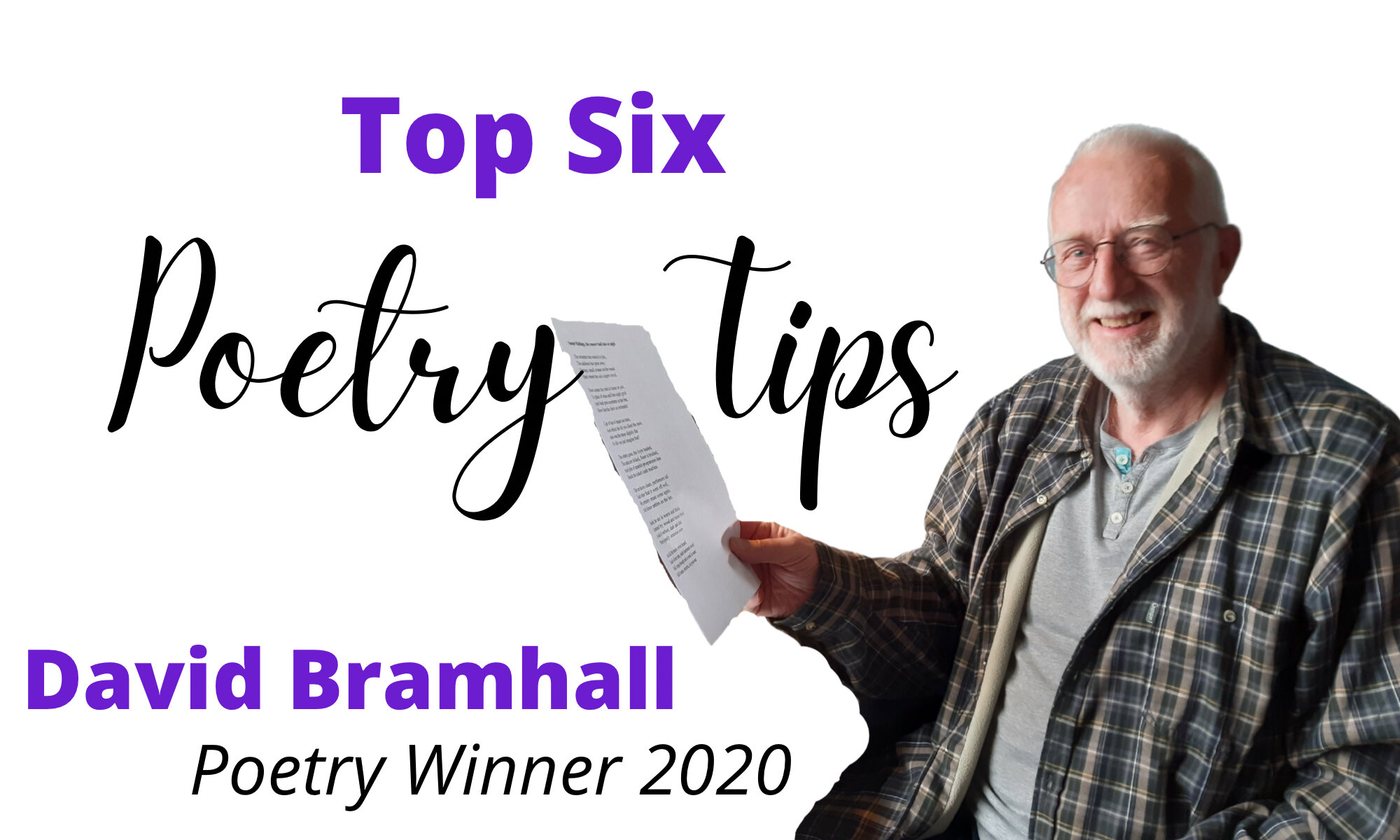David Bramhall’s Top Tips - Writing Poetry
David Bramhall is the Winner of the Poetry Category for King Lear Prizes 2020.
You can read his winning poem, Snape Maltings, here.
Because I won in 2020, King Lear Prizes have kindly asked me for some advice about writing poetry. This may be a mistake on their part, as I am hardly a serious poet and some of my views will probably seem a bit odd. But I can only speak from my own experience, so here goes…
ONE: Inspiration
“Inspiration” is a red herring, forget it. It's a waste of time sitting on a beach or gazing soulfully out of a window in the expectation that a poem will suddenly pop into your head. It won't. Poems have to be worked on, forged out of their raw material – words.
TWO: Expressing Yourself
Similarly, forget about “expressing yourself”. If you think you have something important to say about life, the universe and everything, write an essay or post it on Facebook. Don't put it in a poem. Poems are about words, not airy-fairy philosophical insights.
THREE: Working on a Poem
I repeat, poems need to be worked on. They don't just float down from heaven to be captured and put on paper by the grateful poet. Shakespeare didn't drift about sniffing flowers and waiting for the muse to visit, he had bills to pay. It's the same in all the arts – Haydn didn't have time to wait for inspiration, he had 104 symphonies to write because writing symphonies was his job and he had hungry mouths to feed.
FOUR: Words
The important thing about a poem is that it is constructed from WORDS. It is a piece of music with words instead of notes. It is a picture with words instead of colour. It is a story that grows out of the words that tell it. So that's my advice, really – START WITH THE WORDS!
I once got a silly expression in my head, “cheerily, cherrily, chicken and chips!” It wouldn't go away, and the rhythm of it was so infectious that it took very little effort to end up with a whole poem – a rather childish one and certainly not great art, but it rhymed, it scanned and it was fun. C.S.Lewis was great at this sort of thing – remember “With stumping stride in pomp and pride We come to thump and floor ye”? Look how he has chosen words with plenty of explosive consonants to conjure up the giants marching into battle (it begs to be recited with a Yorkshire accent, I'm blowed if I know why!). Recite the lines to yourself and feel the rhythm too – it goes 'Thump and Thump and Thump and Thump' as they stomp down the valley with their clubs over their shoulders.
FIVE: Finding a Hook
And if the words themselves don't provide an adequate hook to hang a whole poem on, try some other feature. My own winning poem, ‘Snape Maltings’, began in deliberate banality with ordinary things like “Cup of tea or beans on toast”. Only six short verses later we are in an eldritch alternative world, imagining something much darker and more strange, “A well of velvet, dark and dim, Where ghostly oratorios swim ...” The whole thing is about the contrast, light and dark, crowded and deserted, sound and silence, normal and weird.
The world's best poem, “Stopping by woods on a snowy evening” by Robert Frost, is written in deceptively simple language and describes deceptively simple things. So what's good about it? Look at the rhyme scheme: the whole poem hangs on the neat device of carrying a rhyme over from one verse to the next. It's a trick, really. One might dignify it by calling it 'a device'. John Donne would probably have called it 'a conceit'. Geoffrey Chaucer would have written a fart joke instead.
SIX: An Example
See? Any poem needs a hook to hang it on, and that hook is rarely a beautiful idea or philosophical insight. It's nearly always a technical device, a trick of rhythm or rhyme, the selection of words with a particular quality, or maybe that simplest thing of all, some repetitious word or phrase. Here's something I dreamed up recently, for my wife's birthday as it happens …
Happy Birthday, stuck indoors
Same old ceilings, same old floors
Same old kitchen, same old hall
Same old pictures on the wall
Same old houses, same old street
Same old shoes on same old feet
Same old dinner, same old tea
Same old rubbish on TV
Same old supper, same old bed
Same old things we've always said
Same old someone you can trust
To be on hand come boom or bust
Come dust or mildew, rot or rust ...
Happy Birthday. Mustn't fuss.
Same old birthday
Same old us
David Bramhall lives in Harleston, a small market town in the Waveney Valley on the Norfolk/Suffolk border, and is married with two grown-up children and two grandchildren. Since retirement David has gravitated towards the written word, and has self-published a number of non-fiction books, novels and short stories.
What next?
If you’re ready to enter your poem into the King Lear Prizes you can do so here.
If you want to read more posts about poetry, check out our Hints & Tips blog here!
If you want to know more about the King Lear Prizes generally, please go here.
If you have any feedback on this post, or any other ideas of what hints & tips could be useful to you in your poetry, please email me (Matilda!) on matilda@kinglearprizes.org. I’d be delighted to hear from you.
